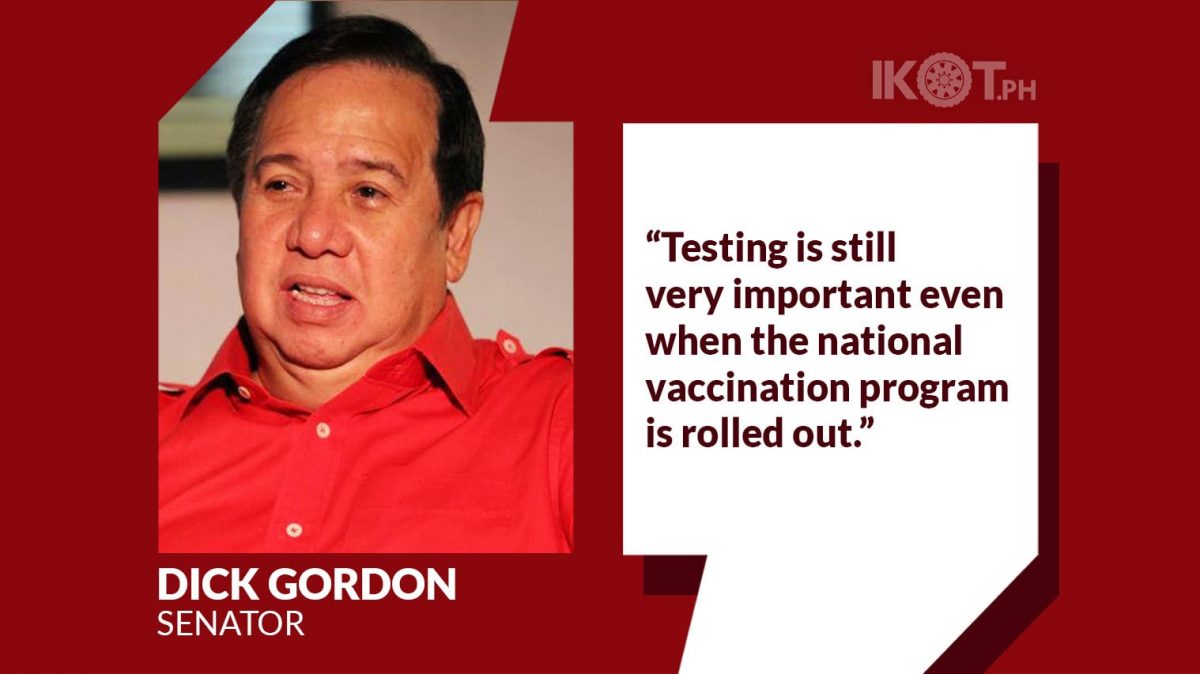Senator Dick Gordon, chairman and CEO of the Philippine Red Cross (PRC), disclosed that they are targeting a nationwide roll out by February 1 of the saliva RT-PCR test that the Department of Health gave the green light to recently.
Following the DOH’s approval of the use of saliva as an alternative specimen to the nasopharyngeal swab for RT-PCR testing in PRC’s laboratories, the PRC officially launched the new system last January 25.
“Our goal is to go nationwide by Feb. 1. Today, we opened our machines in Manila and Mandaluyong for saliva test,” Gordon said.
“An inoculated person could still be a carrier and could be infectious.”
The veteran legislator also cautioned that testing is still very important even when the national vaccination program is rolled out since an inoculated person could still be a carrier and could be infectious.
“You cannot do away with testing. Kahit na meron ka ng vaccine, kailangang magte-test ka. Kailangan may proteksyon ka pa ding face mask, kailangan may proteksyon ka din ng hugas kamay at distancing because even if you get the vaccine, you could still be a carrier. Pangalagaan natin ang mga sarili natin para hindi tayo makakasakit ng ating mga mahal sa buhay,” the seasoned lawmaker stressed.
Medical experts said studies have shown that the COVID vaccine inhibits progression to a severe case of the disease for an inoculated individual. However, there is no evidence that it could inhibit transmission to another individual.
“The patient can collect the specimen sample while at home and send it to the PRC laboratory.”
The senator said it is also convenient because the patient can even collect the specimen sample while at home and send it to the PRC laboratory. Patients can also call PRC’s COVID hotline – 1158 to make reservations or book online at https://book.redcross1158.com/.
The Philippine Red Cross saliva RT-PCR test uses the same system as the system previously used with the nasopharyngeal swab samples, the only difference being the method of collection of the sample specimen.
Instead of having a swab inserted into one’s nostrils and throat, one may now simply deposit 1.5 ml to 2 ml of saliva through a straw into a container. The specimen then undergoes testing in the RT-PCR machines.
The new saliva collected system has the advantage of being far more comfortable than the swab system, which most patients find painful. It is also more cost efficient, making it more affordable for the population.
Additionally, processing of the sample in the testing machine takes less time, allowing for release of results in approximately 6 to 12 hours.
To date, only the Red Cross saliva RT-PCR test has been approved by the DOH as a saliva-based test.

